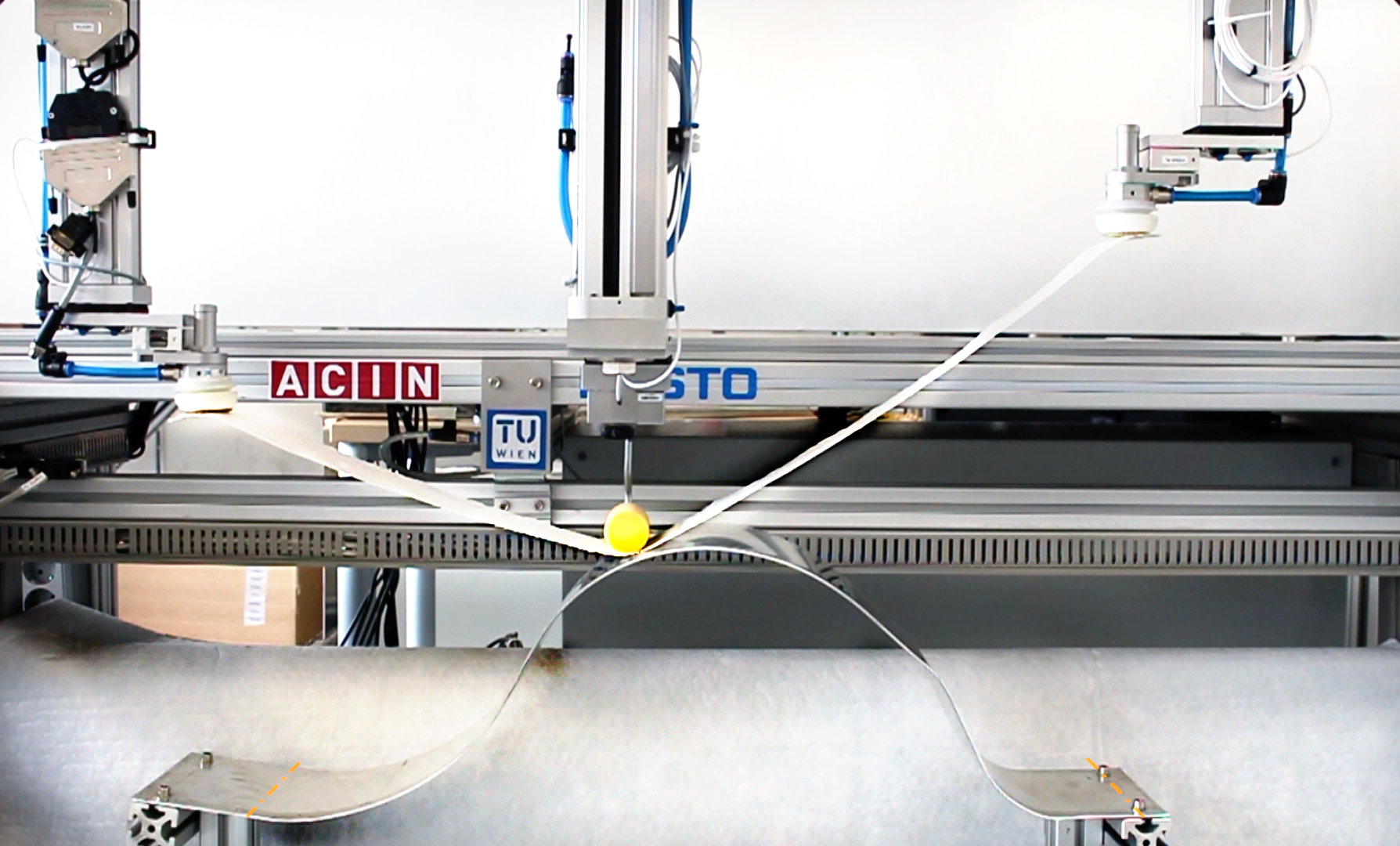Tobias Glück, Andreas Kugi and Stefan Flixeder win the Mechatronics Paper Prize Award 2020
Handling of deformable materials
Tobias Glück, Andreas Kugi and Stefan Flixeder win the Mechatronics Paper Prize Award 2020 for their paper on "Force-based cooperative handling and lay-up of deformable materials: Mechatronic design, modeling, and control of a demonstrator".
Deformable materials like textiles, leather, and adhesive foils are used in many industries. The handling of these materials, however, is still mostly done manually and is therefore labor intensive and time consuming.
Tobias Glück (Competence Unit Complex Dynamical Systems/VAC), Andreas Kugi (VAC und ACIN/TU Wien) and Stefan Flixeder (former PhD student ACIN/TU Wien) develop automation systems to support the manufacturing process of deformable materials like fiber-reinforced plastics (FRP). Key markets for these FRP components are e.g. the aerospace and automotive industries. The demands on high accuracy, reproducibility and short cycle times thus work as a driver for the automation – even for low-volume production.
Demonstrator Design – handling of deformable materials
The Mechatronics Paper Prize Award
The IFAC World Congress (International Federation of Automatic Control) takes place every 3 years. It promotes research and application of automatic control and systems engineering. At each IFAC World Congress, the authors of three selected papers of the journal Mechatronics are granted for their outstanding contribution to the field. Due to the recent circumstances caused by the corona pandemic, this year's IFAC World Congress in Berlin, Germany, will be held online – for the first time in its 63-year history.
Abstract
This work presents a cooperative, force-based handling approach for the lay-up of highly deformable materials on a mold, a scenario, e. g., encountered during the manufacturing of fiber reinforced plastics. A two-dimensional preforming demonstrator is designed which reflects the basic functionality of the process under consideration. Suitable mathematical models of the demonstrator and the deformable material provide a basis for the controller design and a force-based motion planning framework for the lay-up process. The framework proves to be most flexible as it does not rely on preplanned position trajectories but calculates the movements of all manipulators on-line and can promptly react to external disturbances. Experimental results on the demonstrator underline the feasibility and performance of the presented approach for the lay-up of a deformable fabric on a double-curvature mold.
We thank Festo AG & Co. KG. for their financial support.
Read the paper:
Mechatronics, Volume 47, 2017, Seite 246–261
The Congress
The 21. IFAC 2020 – online – from July 12th -17th 2020
Contact




